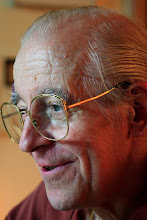In 1077, Emperor Henry IV (1050-1106, r.1056-1105) of the Holy Roman Empire crossed the Alps and arrived at the castle of Canossa near Reggio Emilia in northern Italy to perform penance to Pope Gregory VII (c.1015-1085, p.1073-1085). Pope Gregory, who excommunicated the emperor not long before, was staying in the castle at the time, but the emperor had to stand in the snow outside of the castle for four days without food, wearing only underclothes. Only after Emperor Henry knelt before the pope and begged for forgiveness did the pope lift the excommunication. This was the Walk to Canossa, which symbolically established the supreme power of the Catholic Church.

Emperor Henry IV at the gate of the castle of Canossa
(Etching by August von Heyden, 1827-1897)
(Etching by August von Heyden, 1827-1897)
Before the incident, the pope and the emperor had a symbiotic relationship. To expand the Catholic Church, the pope needed the military power of the emperor. In return, the church gave the emperor the right to appoint clergymen. Pope Gregory, however, wanted to change that, believing the church should be independent from the state to fully restore the rights of the church. So Pope Gregory, in 1075, rescinded Emperor Henry’s right to elect bishops. The emperor then dethroned the pope, and the pope, in return, excommunicated the emperor. The Walk to Canossa represented the pope’s victory over the emperor.
The history of Europe in the Middle Ages is dotted with wars, as the church and the state were constantly at odds with each other over who would have the upper hand. The American expression, “separation between church and state,” was first used by President Thomas Jefferson (1743-1826, p.1801-1809) in a letter sent to a Baptist church in Danbury, Connecticut, in 1802. This principle was later reflected in the country’s constitution and spread to other countries that supported democracy.
The Korean government has pushed for years the introduction of sukuk (صكوك, legal instrument, often referred to as ‘Islamic bond’), to the local capital market. The effort, however, proved to be fruitless as it stumbled on an unforeseeable obstacle: the conservative churches, among the biggest supporters of President Lee Myung-bak (李明博, 이명박, 1941- , p.2008- ) administration, opposed sukuk and related proposal of tax exemption for local issuers of the Islamic bonds. They believed that sukuk is dangerous money; they suspected that part of the profit from sukuk may be used to support fundamentalist Islam terrorism. They argued that most other countries that conduct sukuk didn’t exempt tax from the transaction, and criticized the Korean government for giving undue favours.
Ardent Christian lawmakers of the governing Grand National Party (한나라당, Hannara-dang) fiercely opposed the bill, while other neutral lawmakers were reluctant to deal with the issue on fears of losing the Christian vote. Since President Lee Myung-bak is a presbyter and a large part of his victory in the presidential election was due to the Christian community, he remained silent about the issue.
The Korean Constitution stipulates that “No state religion shall be recognized, and church and state shall be separated.” An offside observer can only have the impression that the 21st century version of the Walk to Canossa is happened in Korea!
The history of Europe in the Middle Ages is dotted with wars, as the church and the state were constantly at odds with each other over who would have the upper hand. The American expression, “separation between church and state,” was first used by President Thomas Jefferson (1743-1826, p.1801-1809) in a letter sent to a Baptist church in Danbury, Connecticut, in 1802. This principle was later reflected in the country’s constitution and spread to other countries that supported democracy.
The Korean government has pushed for years the introduction of sukuk (صكوك, legal instrument, often referred to as ‘Islamic bond’), to the local capital market. The effort, however, proved to be fruitless as it stumbled on an unforeseeable obstacle: the conservative churches, among the biggest supporters of President Lee Myung-bak (李明博, 이명박, 1941- , p.2008- ) administration, opposed sukuk and related proposal of tax exemption for local issuers of the Islamic bonds. They believed that sukuk is dangerous money; they suspected that part of the profit from sukuk may be used to support fundamentalist Islam terrorism. They argued that most other countries that conduct sukuk didn’t exempt tax from the transaction, and criticized the Korean government for giving undue favours.
Ardent Christian lawmakers of the governing Grand National Party (한나라당, Hannara-dang) fiercely opposed the bill, while other neutral lawmakers were reluctant to deal with the issue on fears of losing the Christian vote. Since President Lee Myung-bak is a presbyter and a large part of his victory in the presidential election was due to the Christian community, he remained silent about the issue.
The Korean Constitution stipulates that “No state religion shall be recognized, and church and state shall be separated.” An offside observer can only have the impression that the 21st century version of the Walk to Canossa is happened in Korea!
Giorgio Olivotto
Seoul, Korea
January 29, 2012
Seoul, Korea
January 29, 2012

Nessun commento:
Posta un commento